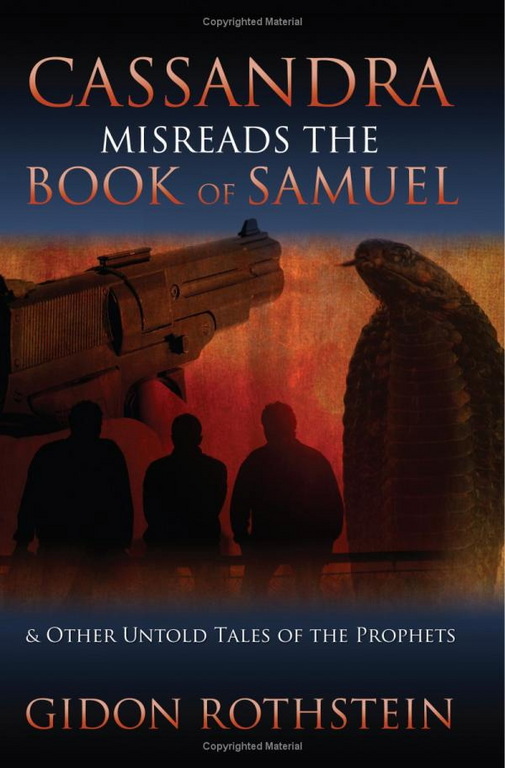Book review: Cassandra Misreads the Book of Samuel (& Other Untold Tales of the Prophets) by Gidon Rothstein
Reviewed by Miriam Abraham
Issue of Feb. 20, 2009 / 26 Shevat 5769
Following up on his unique and fascinating 2005 biblical fiction book, Murderer in the Mikdash, Rabbi Gidon Rothstein has completed a new collection of short stories depicting the life and times of prophets.
Most are from the Old Testament but one is a prophetess in a longer Greek mythology novella and another is a prophet who lives in our modern day secular world. The eight fictional tales are written in contemporary language, making them accessible to both adults and older teens. The author strives to get his readers to look with a fresh eye at the lessons of oft told biblical stories. He injects all of his narratives with realistically described inter-family relationships, friendship, loyalty, rivalry, ambition, lust and greed –– all the
challenges presented to the human race.
In the first story, "You Can't Change Human Nature," a teen rebels
against his more cautious, law abiding elders to "go along with the
crowd" of idol worshippers. The details of idol worship are very
explicitly described, bringing the sin of the golden calf to life.
In "Draft Report of the Shevna Commission" there is political tension
between King Menasseh, the high priest Hilkiyah and the prophet Isaiah
who happens to be related to the king. The elderly prophet's actions
are brought under intense scrutiny in the official but secret hearings
of a very realistic, politically motivated "truth commission" set up
to decide his fate.
In "Last One Out Turn Out the Lights" Rothstein humorously tackles
the biographies of some of the last, lesser known seers; Zechariah,
Malachi and Haggai are the newest entrants to an elite but struggling
"prophet training school" where they first meet and compare their
acceptances as merit, need-based or "legacy" students. The three
become fast friends and support each other through the
disappointments, successes and competitiveness of their professional
training.
The last story, "Doomsday Meteor is Coming, the Story of
Everyprophet," vents the frustrations of a modern day visionary whose
efforts to relay a gloom and doom future to his readers are
hyper-criticized by fellow writers at the creative writing workshop in
which he participates. I suspect that our talented author may relate
to some aspects of this last story quite personally.
When not writing, Rabbi Dr. Gidon Rothstein serves as director of
Judaic studies curriculum and teacher training at HAFTR/Machon
HaTorah. He received Smicha from RIETS and a PhD in Judaic Studies
from Harvard. Rabbi Rothstein was a founding editor of
www.torahcurrents.org, a Torah-focused Web magazine. He and his wife
live in Riverdale with their three children.
Both of Rabbi Rothstein's books inspired me to learn more about the subjects he presents. He most definitely has accomplished his goal of retelling the well-known bible stories in a fresh, new way. Whether the topic is life during the time of the Temple or prophets from days of yore, I was compelled to go back to the source to figure out how much of the story is biblical, historical or from his uniquely quirky imagination. His books are well researched and clearly a labor of love for both the Torah and the arts of writing and teaching. Although at times one or two of the tales may become a bit difficult to follow, I recommend "Cassandra Misreads the Book of Samuel" to anyone who wants to spend some quality time on a thought-provoking, interesting and educational read.
Miriam Bradman Abrahams is chair of the upcoming HAFTR Book Fair and
is currently writing her father's memoir. She lives in Woodmere.









